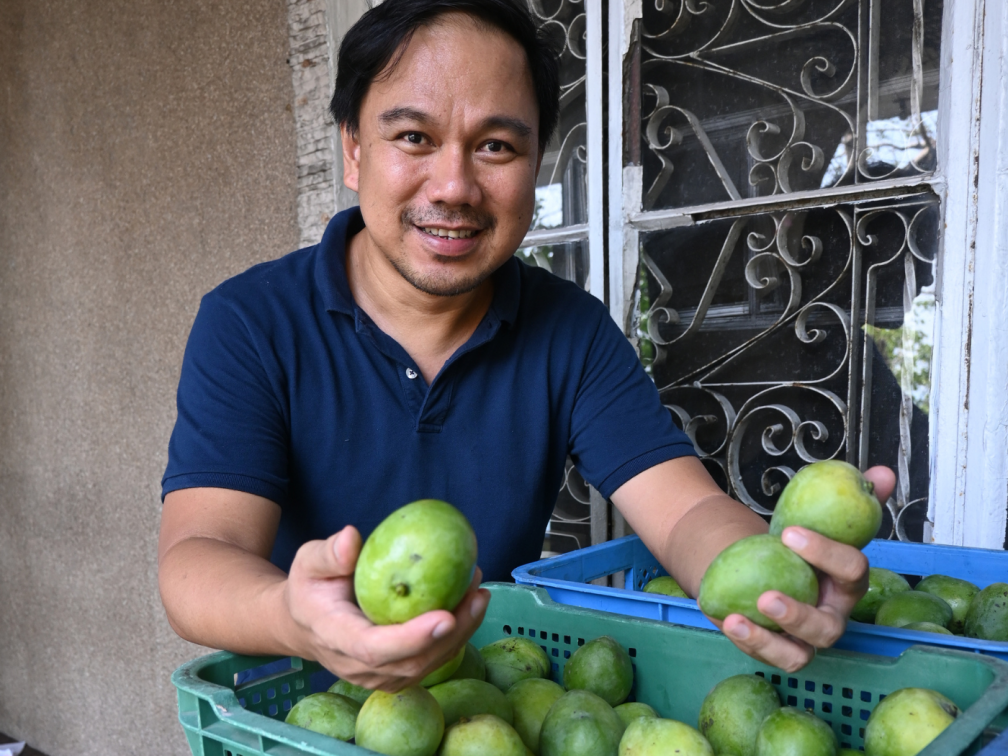Evangelisation by Columban Missionaries is based on faith, that is believing that goodness and justice and love of thy neighbour will overcome poverty, hardship, evil and human suffering. Prayer is so valuable, and it provides energy and grace, motivating us missionaries to practical action to help people to help themselves.
That ethos is what drove the Preda Fair Trade project. A justice and peace activity, initiated by Columban Fr. Shay Cullen, Preda Fair Trade strives for sustainability is all aspects of its work and the core of its mission is to protect the environment and vulnerable people.
The Aeta indigenous people were the first inhabitants of the Philippines. They were hunter and gathers for almost twenty thousand years until the 1950s. Then, their rain forests were cut down to rebuild Europe and Japan after World War II. They survived by turning to subsistence farming, living in poverty in small huts made from bamboo with grass roofs.

Their mountain ancestral land in the northern part of the Philippines had mango trees and fruit that were of no commercial value. Juanito, with a family of four children is a subsistent Aeta farmer. He planted root crops such as cassava to survive. His neighbours had to let their wild pico and Indian mangos rot on the ground since no one would buy his low value fruit. That was until Preda Fair Trade Project began working with this community of farmers. We found export markets for the mangoes and helped farmers reach EU organic standards and maintain them so that their mangoes had a higher value and farmers could charge more for their produce.
Our support of this community continues today. The Preda Fair Trade project empowers the Aeta farmers to act justly, respect their neighbour and work as a community to achieve common goals. We encourage growers to help one another to plant and harvest their crops.
Preda Fair Trade buy the mangos that the Aeta farmers cannot sell in the market because the variety is not commercially viable, specifically the Pico and Indian carabao variety. We arrange for the mangoes to be pulped into mango puree and export both the puree and the pulp. These farmers earn good money from its sale. This year they had a bumper harvest of EU standard organic certified mangos and Preda bought 35 tons from them at high fair-trade prices.

The heat wave of the past 2 months has ended and finally the rain has begun to fall. Mango saplings and calamanci bushes are currently being delivered to the famers by Preda and will be planted over the coming weeks. Planting the saplings between July and October allows them to establish well and thrive in the favourable environmental conditions.
The Columban Missionaries advocate for sustainable crop growing because it aligns with their commitment to environmental stewardship and global solidarity. Growing mangos has several positive impacts on the environment. Mango trees absorb carbon dioxide from the atmosphere during their growth. This helps mitigate the climate crisis by reducing greenhouse gases. Besides this, during photosynthesis, trees release oxygen which contributes to cleaner air and supports life. Mango trees also provide habitat and food for various animals, insects, and birds, enhancing local biodiversity and their fallen leaves and organic matter enrich the soil, promoting healthy ecosystems.
To sell fair trade products, mango farmers must adhere to specific standards that encourage farmers to improve soil and water quality, manage pests sustainably, avoid harmful chemicals, manage waste, reduce greenhouse gas emissions, and protect biodiversity, all of which are aspects that are important to Columban Missionaries in their pledge to care for creation and address climate-related challenges.

Rooted in their aim to protect the environment, the Preda Fair Trade project has been running for 15 years and has supported the planting of thousands of mangos and other fruit trees. It is a fair-trade independent trading organisation based on fair trade criteria and principles of social and moral responsibility with the main goal of supporting small fruit growing farmers, and artisans, craft makers and small independent producers.
The Preda Fair Trade project guarantees a fair price and a better life for growers and producers of mangoes in the Philippines. This is Christianity in action, giving spiritual power and encouragement to local communities to transform their lives by caring and working with each other to better their lives.

